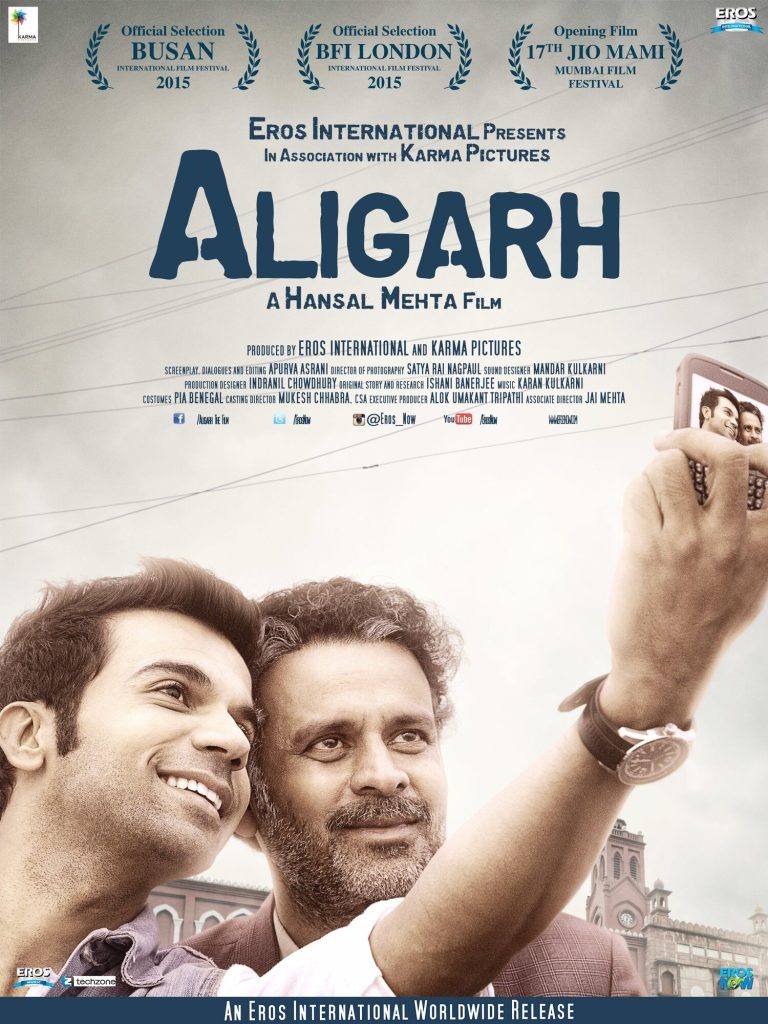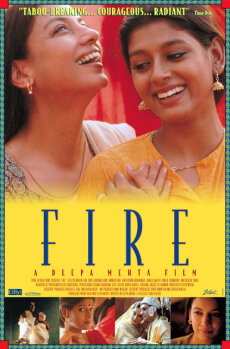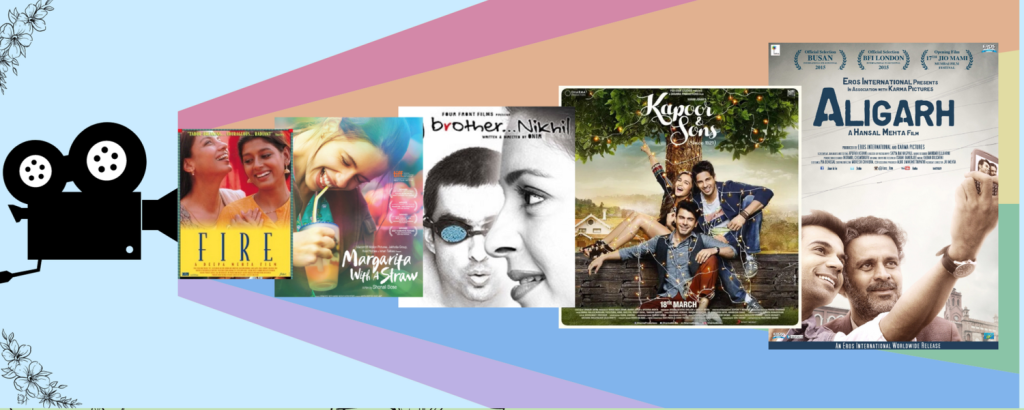Portrayals of LGBTQIA+ characters in Hindi Cinema have often been clichéd, offensive and ridiculed. LGBTQIA+ characters were either comic reliefs, villains, or cautionary tales. Their stories were whispered through metaphors and innuendos, never spoken aloud. But change, slow as it may be, has a way of finding the screen. In the last few decades, a handful of filmmakers have chosen empathy over mockery and truth over tokenism. What followed were stories that didn’t just “show” queer lives, they gave them voice, complexity, and humanity.
This Pride Month, we revisit five Hindi films that broke stereotypes, sparked dialogue, and celebrated love in all its forms.
Margarita with a straw
Directed by Shonali Bose, Margarita with a Straw is a tender, heartfelt story about Laila, a young woman with cerebral palsy, played with immense grace by Kalki Koechlin. When Laila meets Khanum (Sayani Gupta), a visually impaired woman, their friendship blossoms into something deeper, an exploration of intimacy, desire, and identity that feels refreshingly real.
What makes this film remarkable is its unflinching honesty. It doesn’t make Laila’s disability her identity, nor does it make her sexuality her struggle. Instead, it treats both as parts of her, messy, beautiful, and evolving. At a time when mainstream cinema rarely portrayed disability with dignity, Margarita with a Straw dared to celebrate self-discovery beyond social expectation. It reminds us that sexuality is not a rebellion; it’s a revelation.
Aligarh
Few films have captured loneliness and dignity with such haunting stillness as Aligarh. Directed by Hansal Mehta, it tells the true story of Professor R. S. Siras (Manoj Bajpayee), a linguistics professor suspended from Aligarh Muslim University after being outed by a sting operation. Rajkummar Rao plays a journalist who documents Siras’ quiet fight for justice and acceptance.
Aligarh released when homosexuality was still criminalised under Section 377. In that atmosphere, the film became an act of defiance, not loud or angry, but profoundly human. Bajpayee’s performance is deeply internal; every pause feels like a lifetime of silence breaking. The film doesn’t aim to shock; it seeks to move. It asks the simplest, most powerful question: should love ever need defending?

Fire
Deepa Mehta’s Fire was one of the first Indian films to openly explore a same-sex relationship between two women, played by Nandita Das and Shabana Azmi. Released nearly 30 years ago, it sparked protests, bans, and heated debates, but also opened doors that had been tightly shut.
At its core, Fire isn’t only about sexuality. It’s about longing, for love, autonomy, and the right to feel alive. Radha and Sita, trapped in loveless marriages, find solace in each other, not out of rebellion but out of the need to exist as themselves. The film is quietly radical in its simplicity: it doesn’t glorify or sensationalise their relationship. It merely shows two women daring to seek warmth in a world that insists on coldness.
Even today, Fire remains a powerful reminder of how courage often begins in the domestic, at the dinner table, behind closed doors, in the quiet defiance of choosing oneself.

My brother Nikhil
Before conversations about representation and inclusion became mainstream, My Brother… Nikhil dared to speak of two silences: homosexuality and HIV. Directed by Onir and starring Sanjay Suri and Juhi Chawla, it tells the story of Nikhil, a state-level swimmer ostracised after his HIV diagnosis, and his sister Anamika, who stands by him through it all.
The film is heartbreakingly gentle. It doesn’t sensationalise the suffering or paint Nikhil as a victim; instead, it focuses on love, the kind that survives stigma, fear, and loss. In an India still battling ignorance around HIV, My Brother… Nikhil humanised a community often dehumanised by both media and policy.
Its brilliance lies in its restraint. It doesn’t demand your sympathy; it earns your respect. It was one of the earliest Indian films to remind audiences that being queer is not a “storyline”; it’s a life, complete, ordinary, and worthy of dignity.
Kapoor & Sons
At first glance, Kapoor & Sons is your typical dysfunctional family drama, chaos, secrets, and a lot of emotional baggage. But hidden within its humour and heartbreak is a quiet, modern narrative about acceptance. Fawad Khan’s character, Rahul, is a successful author and the family’s “perfect son.” The revelation of his sexuality is neither a shock nor a spectacle; it’s handled with the tenderness it deserves.
Director Shakun Batra deserves credit for normalising queerness without turning it into a sermon. Rahul is gay, and also kind, flawed, funny, and ambitious. The film never tries to “explain” his identity; it simply allows him to exist within it. In doing so, it breaks one of Bollywood’s most persistent stereotypes: that being queer must be tragic. Kapoor & Sons instead offers something rare, quiet normalcy.
About the Author
Prishita is a recent graduate from St. Xavier’s College, Mumbai. She majored in Psychology and was an honors student. She is working on getting her master’s in Industrial Psychology. She has worked on multiple research papers and articles throughout her undergraduate career and worked with content creation companies.


